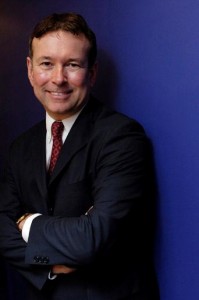 Short-term thinking has hit the headlines in recent years as the catalyst for the recent economic crisis. As regional business continues to evolve at a rapid pace, CIMA (Chartered Institute of Management Accountants) addressed a group of financial and business professionals in Dubai today and addressed what it takes to build a successful and sustainable business over the long-term.
Short-term thinking has hit the headlines in recent years as the catalyst for the recent economic crisis. As regional business continues to evolve at a rapid pace, CIMA (Chartered Institute of Management Accountants) addressed a group of financial and business professionals in Dubai today and addressed what it takes to build a successful and sustainable business over the long-term.
While a long-term strategy is essential, regional businesses must find a way of marrying their short-term operational goals to their future vision if they are to thrive in a corporate landscape that is increasingly aligned to serving the public interest, according to CIMA.
Ray Perry, CIMA executive director, says “We started the seminar today with discussing the challenging business landscape. Events over the past few years have brought new urgency to the age-old debate of how business fits into society. Companies are being chastised for focusing on their own self interest and told to focus on the long-term. Added to this are environmental and technological challenges, such as globalisation and the surge in modern communications, which can spread toxic corporate information in a matter of seconds.”
According to CIMA today’s executives face two daunting challenges as they rediscover the value of long-term thinking and strive to create sustainable companies. First, the genuine need for short-term stewardship can distract managers, even those with the best intentions, from their long-term vision. Second, defining the long term and embedding it into today’s operations are more complicated that they may seem at first glance.
“If companies are to survive and thrive in such a challenging landscape, they need to be able to create a meeting point where short and long-term needs connect. Abandoning short-termism for the longer horizon has been exhorted as the antidote to the recent crisis. But what is really needed is a return to perennial principles of good business practice, with short-term operational actions that are congruent with the long-term vision,” added Perry.
Based on years of experience working closely with employers, professionals and students in financial and business community, CIMA advices that regional companies must focus on the following key dimensions if they are to be considered ‘world class’:
1. Cost leadership: Cost leadership requires non-stop efforts to increase efficiency and reduce the cost of resources used by the business. Beyond the immediate corporate advantages, cost leadership also promotes decreased use of the world’s finite resources while maintaining production levels
2. Durability of the supply chain: Supply chain durability needs to be balanced against the goal to achieve cost leadership. For example, excessive pressure on suppliers to offer low prices could impact on their ability to pay fair wages, thus having a longer-term adverse effect on supply chain durability.
3. A motivated and skilled workforce: Promoting the ethos of ‘doing the right thing, even when no one is looking’ will help both the business and the wider community. Ethical behaviour reduces the thread of fraud within an organization and enhances the reputation of an organization among its wider stakeholder group.
4: Attracting and retaining customers: Increasingly customers are looking for socially responsible companies to supply their goods and services and seek to understand the origins of the materials that go into their goods or are used to deliver services. Among many examples, a growing proportion of consumers want assurances that no child labor was used in the manufacture of clothing.
5: Innovation: The ability to innovate underpins the other four key areas of focus. Innovation allows companies to find new ways to satisfy customer needs, keeps staff motivated and excited about the future, assures suppliers of a company’s prospects, and leads to cost-saving advances in production process and service delivery. In terms of environmental sustainability, the scale and nature of the challenge require innovative and creative approaches to business, often demanding new approaches to familiar problems.
“The good news for regional business is that because of the short-term focus of business in the west, there is an increasing interest globally, in alternative business models emerging from the east,” added Perry.





































